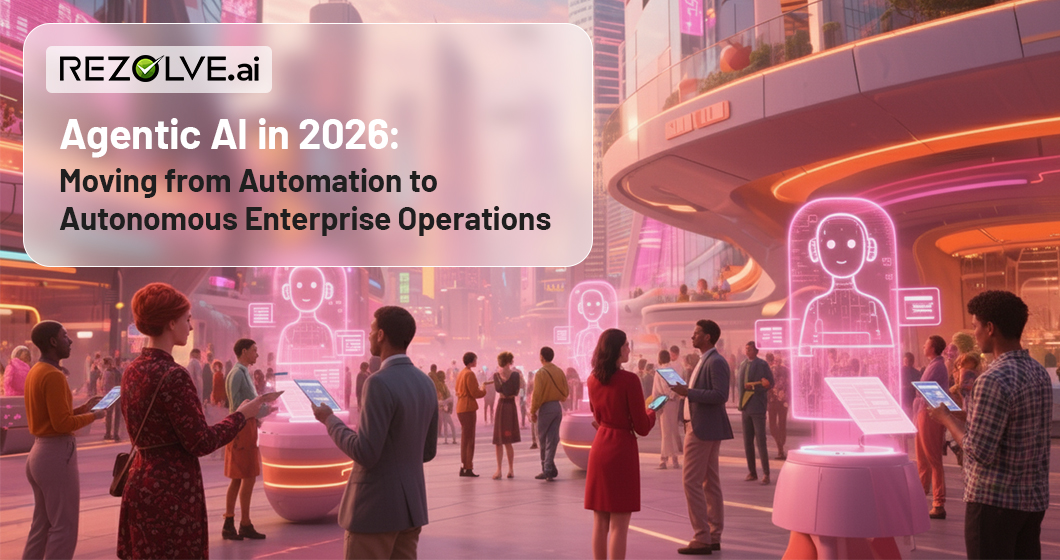Intelligent automation can help IT service desks make better decisions and boost service desk performance. A combination of automation and artificial intelligence technologies is extremely innovative. With conventional approaches to IT service desk operations reaching their limits, most IT organizations have worked tirelessly to ensure their infrastructure can handle the new remote working challenges. The IT Service Desk is typically the primary point of contact between employees, leaders and enterprises or organizations.
IT Automation enables departments to develop better customer-supporting solutions that affect business operations more efficiently, lessen costs, and deliver an enhanced customer experience.
A Bit on the Traditional Service Desk
Traditionally, IT support was a highly technical function that overlooked the employees. Over the past few years, the IT Service Desk function and its role in incident and request management evolved into one of the core components of many service operations of organizations.
Both IT automation and the applications of machine learning, in this context, are beneficial for managing and transferring encrypted data. Through automated processes, companies can secure information across entire organizations.
Chatbots, Intelligent Automation bots, Machine Learning and AI capabilities to help companies/organizations reduce costs, increase response times, grow business and meet compliance requirements. It also provides pre-built Bots and a development environment to enable individual bots to be built.
With the outbreak of COVID-19, IT service desks have a tough time providing quick resolutions to IT issues as more and more employees work remotely. In this uncertain time, intelligent automation can have a considerable impact on IT service desks. This frees support agents from the time-consuming process of repetitive tasks.
Employee Service Management (ESM) allows businesses to scale automated processes across entire organizations using machine learning for increased productivity, gaining greater value, and freeing up capital for tasks that machines cannot perform.
Research manager Shannon Kalvar for IT service management and client virtualization at IDC believes that artificial cognition will become absolutely indispensable within the next three to five years for any operations or support. AI enables IT to support teams to manage incidents better, plan demand, and improve workflows in many ways.
Natural Language Processing Facilitates Help Desk Staff
The application of NLP in the help desk is another potential application of AI. Even though intelligent help desk systems mostly identify problems based on data streams, some issues are still human-generated. For example, an employee may forget their password or be uncertain how to perform a certain function. However, they may not formally express themselves as such: "I forgot my password" is different from "I can't get into the system."
The help desk applies NLP technology to help desk inquiries that are both textual and verbal. NLP enables customers to resolve simple problems using FAQs, computer-based training modules or level-one IT support staff. Only complex or rare problems require escalation to a more experienced staff member, and NLP ensures these staff members only address matters relevant to their specific skill sets.
Businesses like BMC, ManageEngine, SolarWinds and ServiceNow are rapidly integrating AI into their products. Chatbots and virtual support agents.
Many support managers are content to deflect simple repetitive queries and requests to IT support agents instead before escalating complex interactions to live agents. Virtual Agents (VAs) are virtual assistants that offer support and assistance geared specifically to IT in a service management scenario.
Besides extending chatbot capabilities, they also take action on behalf of users to reset passwords, deploy software, escalate support requests, and execute IT changes to restore IT services. Unlike most chatbots and personal assistants, which require extensive customization, VSAs are pre-programmed with ITSM processes, which allows them to handle procedural escalation of incidents.
Modern Help Desk Challenges And Concerns Using the power of AI
The training and curating of AI systems take a long time. The virtual assistant must provide an artificial intelligence system with clean and well-labeled data to be useful. Knowledge bases have to be documented. Fortunately, many organizations have already been writing them and are increasingly using online help resources alongside internal knowledge bases.
People prefer dealing with real people when contacting IT support to chatbots or virtual support agents. Artificial intelligence will change the way people work and augment their abilities rather than replace them. Automation is always feared, but we also look forward to answering more complex questions instead of routine ones.
Getting rid of easier tickets at help desks could be a concern; it could leave service desk people to deal with more difficult ones. It impacts the workload mix; there are few easy tickets if a virtual agent is successfully adopted.
IT support professionals' ability to use AI and how quickly they will be able to do so depends on how ready organizations are to leverage these technologies. They need good ITSM processes and knowledge management. Today, most organizations can leverage AI to fulfill software requests, manage user identities and access, and implement natural language querying of existing knowledge bases.
Clearly, AI is emerging as an important component of IT strategies, and services such as help desk and IT support will be among the beneficiaries of these new capabilities.
What Can You Do Now?
With so much talk of AI-powered Helpdesk, would you like to reduce your support costs by implementing a single-window approach integrated within Microsoft Teams? Rezolve.ai offers a free demo and a trial.





.webp)




.jpg)

.png)








.png)